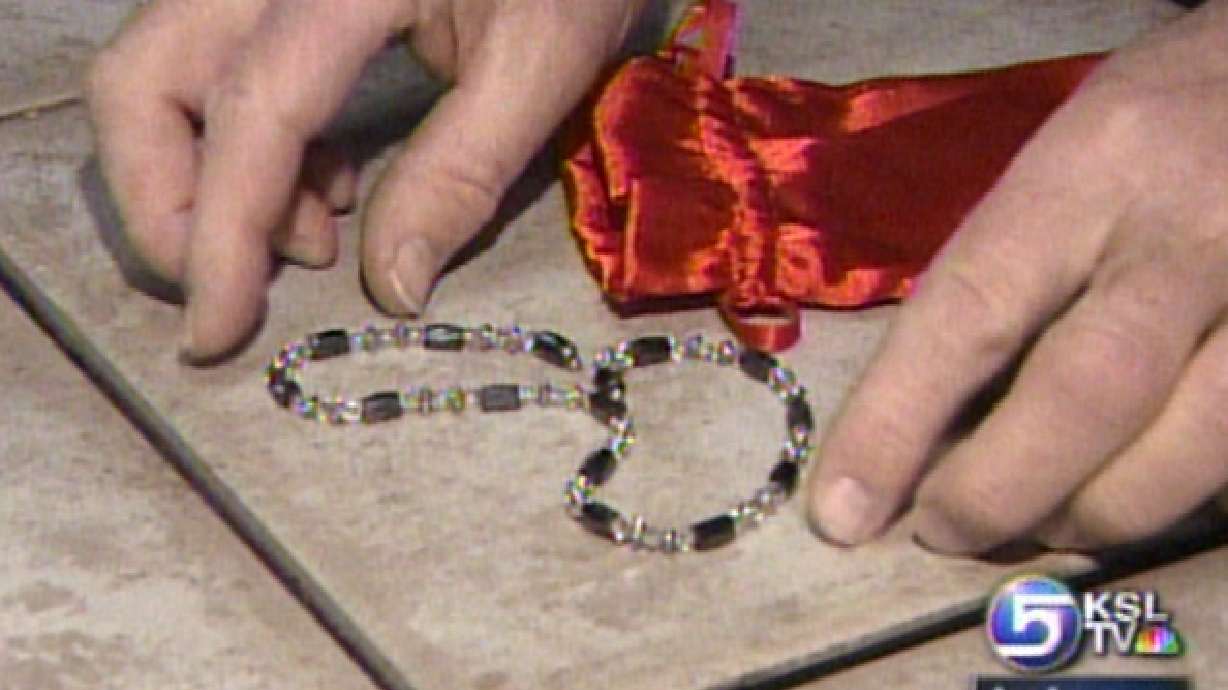Estimated read time: 1-2 minutes
This archived news story is available only for your personal, non-commercial use. Information in the story may be outdated or superseded by additional information. Reading or replaying the story in its archived form does not constitute a republication of the story.
Ed Yeates ReportingA holiday warning tonight for users of pacemakers and implanted defibrillators -- stay away from a different type of magnet being used more and more in clothing, jewelry and other products.
To keep his heart in rhythm Grant Wilson depends on a combination pacemaker and defibrillator implanted in his chest, just under the skin. He's only had the device for two months and was in today for a routine checkup at the Utah Heart Center. He was not aware of the latest warning from the Heart Rhythm Society.

It seems small little magnetic stones, made from neodymium-iron-boron, now used in necklaces, bracelets, toys, even clothing, just might interrupt those cardiac devices.
Brian Crandall, M.D., Cardiologist, LDS Hospital: "If someone had a defibrillator and just happened to go into cardiac arrest at that time when they needed the defib, it may not be able to sense it and give the needed therapy."
In a study, seventy patients wore necklaces made from the magnets. Magnetic interference occurred in all the patients. Their pacemakers and defibs returned to normal after the necklaces were removed.
Brian Crandall, M.D.: "But it is something new that this type of magnet being placed in clothing or jewelry, is something we really haven't been aware of before. So that is a new twist to it."
Grant Wilson, Patient: "It certainly would be nice to have some sort of label or warning on products which might have these magnets in them."
The Heart Rhythm Society agrees, saying manufacturers should be required to put warning labels on these products.
The study took place at the University Hospital of Zurich in Switzerland. Of the seventy patients, 41 had pacemakers, 29 had the defibrillators.









